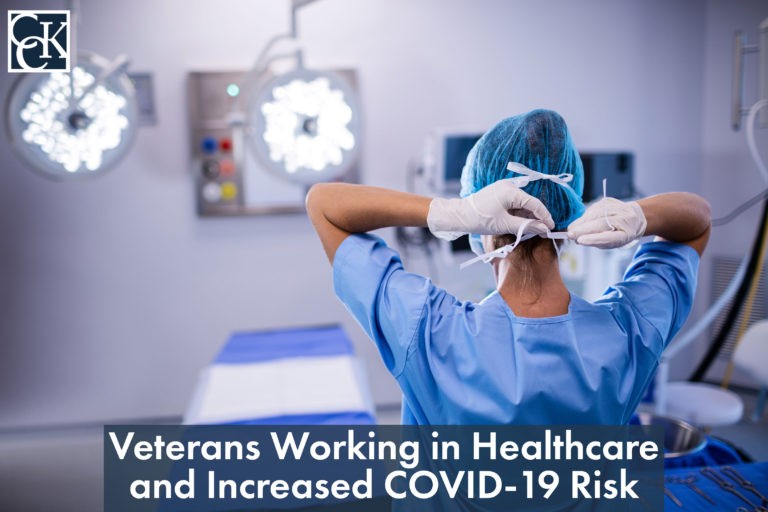Veterans Working in Healthcare and Increased COVID-19 Risk

A new study released by the Journal of Occupational and Environmental Medicine traced COVID-19 infections among health care personnel who worked in the United States Veterans Health Administration.
Tracing COVID-19 Among Veterans Working in Health Care
The study tracked the results of health care personnel who work within the U.S. Veterans Health Administration and tested positive for COVID-19 between March 1, 2020 and August 31, 2020. The U.S. Veterans Health Administration is the largest employer of health care personnel in the United States, as it includes 170 VA Medical Centers and 1,074 outpatient sites.
The results of the study showed a higher risk of infection for males than females. Additionally, Hispanic or Latino and Black healthcare personnel within the Veterans Health Administration faced a higher rate of infection than White health care personnel. Hispanic or Latino health care workers experienced roughly 3 times the risk of infection for COVID-19 as White healthcare personnel. Black health care personnel faced 2.5 times the risk of infection.
Higher Risk of Contracting COVID-19 for Veterans Working in Health Care
The study identified that health care workers with veteran status were 1.5 times more likely to become infected with COVID-19 than non-veterans. This indicates that veterans working as health care workers do indeed face a higher risk of contracting COVID-19.
Additionally, the study traced health care providers who subsequently died after contracting COVD-19. Of the 5,925 health care providers analyzed, eighteen died.
The study showed that health care workers, who were also veterans, were 2.8 times as likely to die after a COVID-19 infection as non-veterans. Among different races/ethnicities, there was no difference in risk of death. Older health care personnel, specifically those over 65, also experienced a higher risk of mortality after COVID-19 infection.
The study does acknowledge possible selection bias because all the patients, who were health care personnel and died after COVID-19 infection, were cared for and died in Veterans’ Health Administration hospitals or had their death recorded in the electronic health record.
Additionally, the study notes that there are higher rates of fatal diseases among veterans than non-veterans, which could explain why the coronavirus poses a higher risk for veterans working in health care. Multiple other studies also indicate that the veteran population experiences more dire health circumstances than the general population.
What is VA Doing to Help Veterans During the COVID-19 Pandemic?
VA offers diagnostic testing for veterans who have VA health care and meet CDC testing criteria. Veterans can visit the VA Coronavirus “Frequently Asked Questions (FAQs)” webpage to find more information on scheduling a COVID-19 test.
If a veteran is experiencing the following symptoms, VA recommends calling 911:
- Difficulty Breathing
- Chest Pain/Pressure
- Blue Tint to Lips or Face
- Confusion
- Difficulty Waking Up or Staying Awake
VA Medical Centers also offer treatment to veterans who test positive for coronavirus.
Can Veterans Receive Increased Benefits if They Test Positive for Coronavirus?
Coronavirus has been shown to negatively affect the respiratory system and particularly the lungs. It is possible that veterans who are service-connected for their lung conditions could receive an increase in benefits as a result of contracting COVID-19, though it is not certain.

About the Author
Share this Post
